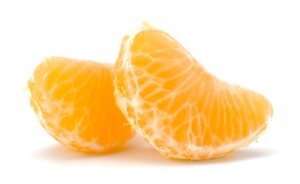Eat Mandarins to Stimulate Fat Loss and Lose Weight


Reviewed and approved by Doctor Carlos Fabián Avila
When you want to lose weight, a fundamental strategy is to avoid sugar at all costs. So, what better way to satisfy this craving for sweets than with a natural substitute? Furthermore, by eating mandarins, you can stimulate fat loss and lose weight.
You might like: The Four Most Fattening Foods
Mandarins are basic food that, fortunately, perfectly fit in with a fat-fighting diet. Additionally, they are also sweet enough to eat as a snack or dessert.
As a result, mandarins are a marvelous substitute for sweets that have a lot of calories. So as you can see, you should eat mandarins to stimulate fat loss.
Health Benefits of Mandarins
Mandarins, along with oranges, are very famous, of course, for their vitamin C content (27 mg for every 100 g). This is particularly important for smokers, who may require double the amount of vitamin C that non-smokers need to help protect themselves from developing lung cancer.
For women of childbearing age, mandarins are also a source of folic acid, which helps prevent birth defects.
Moreover, mandarins contain over 150 different phytochemicals and over 60 of these are flavonoids. Flavonoids protect blood vessels, reduce inflammation, and are powerful antioxidants. Polyphenolic phytochemicals are antioxidants that help reduce the risk of cancer and heart diseases.
Currently, researchers are studying polyphenols for their role in memory and other brain functions. Another group of phytochemicals, flavanones, especially one called hesperidin, can reduce inflammation, blood pressure, and blood cholesterol levels.
The inner white pulp of mandarins contains quite a bit of Hesperidin, which is why researchers recommend eating as much of the white membrane that your taste buds can handle.
The Power of Mandarins to Stimulate Fat Loss
A study by the Murray Huff lab team at the University of Western Ontario shows that nobiletin, a flavonoid found in mandarins, prevents the accumulation of fat in the liver. This is thanks to the stimulation of genes involved in burning excess fat and the suppression of genes responsible for making lipids.
This is the same group that discovered a flavonoid in pomegranates called naringenin, which offers similar protection for obesity and other signs of metabolic syndrome.
According to Huff, the thing that is truly interesting for them is that nobiletin is ten times more powerful in its protecting effects compared to naringenin. Additionally, nobiletin has the ability to protect you from atherosclerosis.
All cited sources were thoroughly reviewed by our team to ensure their quality, reliability, currency, and validity. The bibliography of this article was considered reliable and of academic or scientific accuracy.
-
Assini, J. M., Mulvihill, E. E., & Huff, M. W. (2013). Citrus flavonoids and lipid metabolism. Current opinion in lipidology, 24(1), 34-40.
-
E Mulvihill, E., & W Huff, M. (2012). Citrus flavonoids and the prevention of atherosclerosis. Cardiovascular & Haematological Disorders-Drug Targets (Formerly Current Drug Targets-Cardiovascular & Hematological Disorders), 12(2), 84-91.
-
Mulvihill, E. E., Assini, J. M., Lee, J. K., Allister, E. M., Sutherland, B. G., Koppes, J. B., … & St-Pierre, P. (2011). Nobiletin attenuates VLDL overproduction, dyslipidemia, and atherosclerosis in mice with diet-induced insulin resistance. Diabetes, DB_100589.
- Gimeno Creus, E. (2004). Compuestos fenólicos. Un análisis de sus beneficios para la salud. Retrieved 25 February 2020, from https://www.elsevier.es/es-revista-offarm-4-articulo-compuestos-fenolicos-un-analisis-sus-13063508
- GÓMEZ-ÁLVAREZ SALINAS, P. (2003). La nutrición del fumador. Consejo farmacéutico. Retrieved 25 February 2020, from https://www.elsevier.es/es-revista-farmacia-profesional-3-articulo-la-nutricion-del-fumador-consejo-13050137
- Granados Loarca, E. (2003). Uso de flavonoides (hesperidina) en el tratamiento de venas varicosas vesicales sangrantes. Actas Urológicas Españolas, 27(9). doi: 10.4321/s0210-48062003000900012
This text is provided for informational purposes only and does not replace consultation with a professional. If in doubt, consult your specialist.








